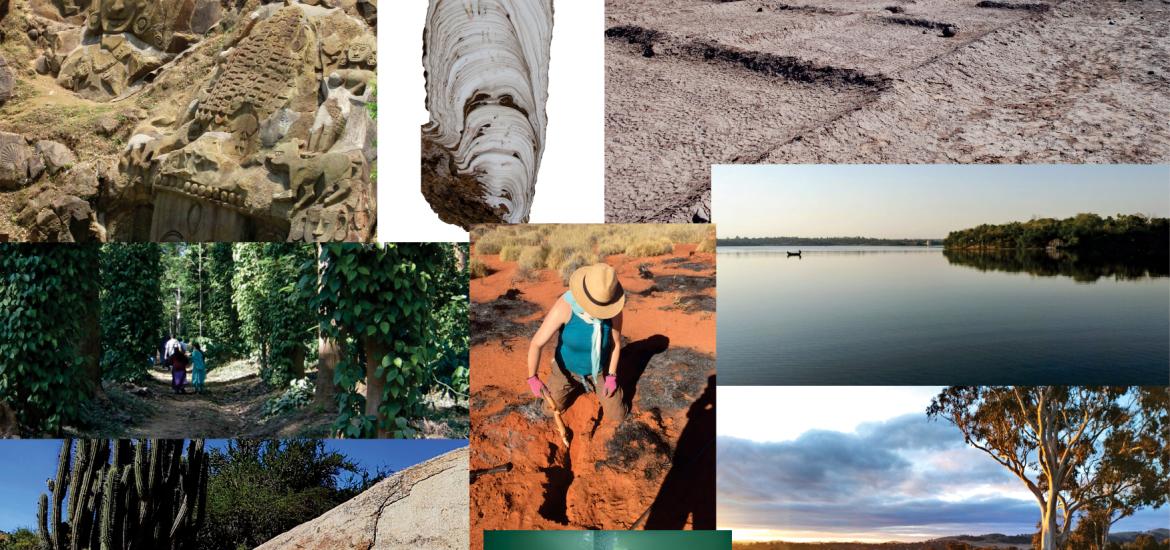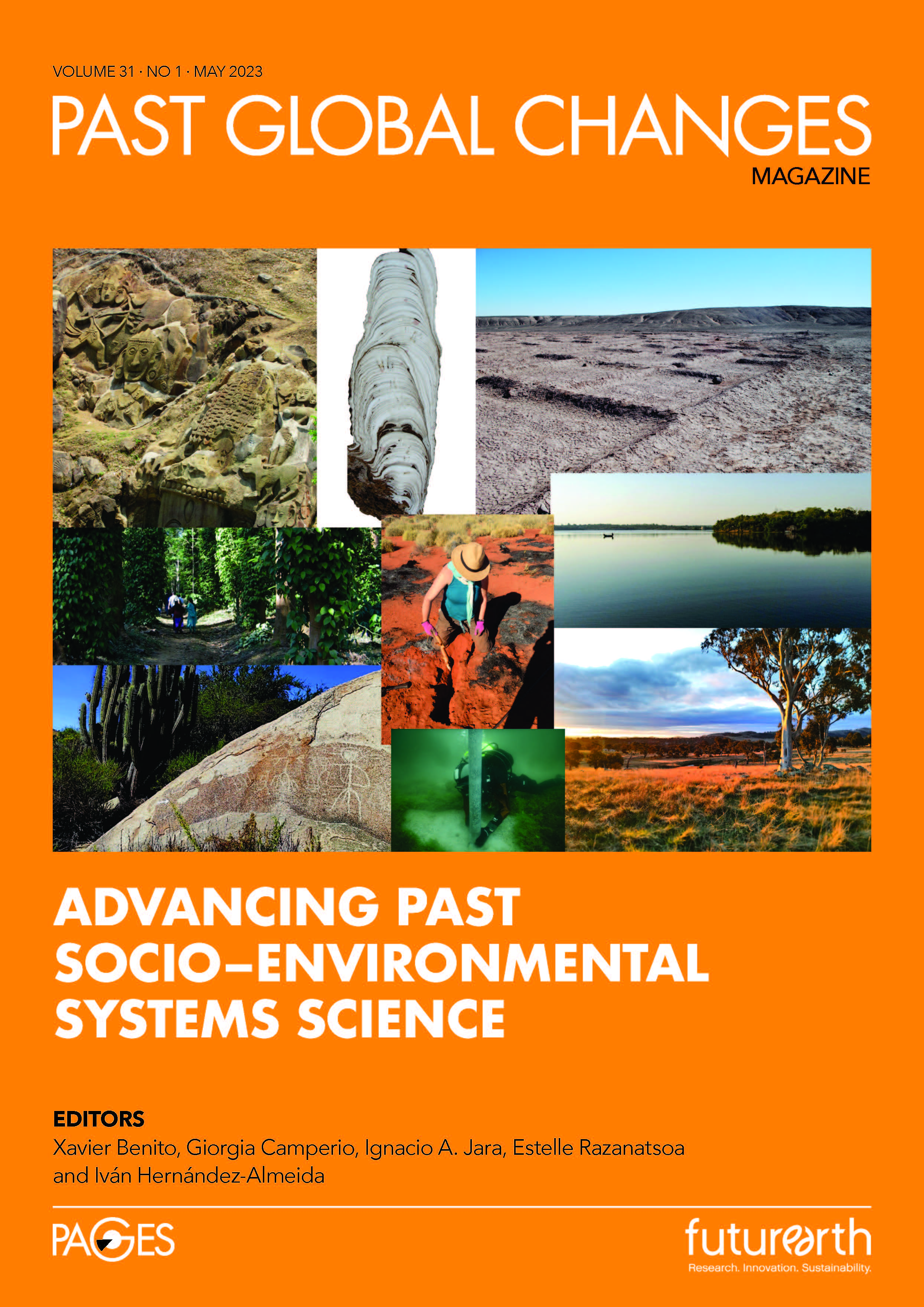- Home
- All News Overview
- Out Now! Past Global Changes Magazine 31 (1): "Advancing Past Socio–environmental Systems Science"

Tuesday, 23 May, 2023
The latest Past Global Changes Magazine is available to read online.
Vol. 31 (1) guest editors: Xavier Benito, Giorgia Camperio, Ignacio A. Jara, Estelle Razanatsoa and Iván Hernández-Almeida.
Humans, social elements, and natural processes interact with each other and the environment through time. Understanding interactions and feedback mechanisms in these so-called past socio–environmental systems helps society to adapt, build resilience and develop more sustainable practices. This special issue contains articles describing past socio-environmental systems (SES) at a range of timescales, highlighting the need for interdisciplinarity and collaboration for advancing in this field of paleoscience.
Table of contents overview
Editorial
> Advancing past socio–environmental systems
Science highlights
> Archaeoecology: Using archaeological data to study ecosystems of the human past
> Connecting paleoecology and art: A novel approach to recall socio–ecological memories in inhabited volcanic settings
> Integration of proxies in human–environmental systems: Paleoecology, paleoclimatology, and archaeology
> Situating past societies in their environments: Emerging techniques
> Environmental history of the northern Maya Lowlands: Evidence from a karstic lake
> Speleothems as a novel tool to elucidate human–fire–ecosystem dynamics in tropical Australian savanna
> Pre-Columbian legacy and modern land use in the Bolivian Amazon
> Interactions between past societies and environmental change in the Lake Titicaca region (tropical Andes)
> Past synchronies, asynchronies, and collations between naturally and anthropogenically driven changes in northern Chile
> Human–environment interactions in south Asian watersheds over the last 100 years: A multi-disciplinary analysis of talavs
> Paleoenvironmental change and human activity at Okomu National Park, Nigeria
> Newly discovered Plio-Pleistocene sites in west Mt. Kenya: Potential tropical high elevation refugia?
> Insight into the 4.2 ka event records in northeast India: A global connection and the geological evidence
> pSESYNTH project: Community mobilization for a multi-disciplinary paleo database of the Global South
Fellowship Reports
> Interrogating the digital eye: Building capacity to analyze and interpret sedimentary charcoal records from African grassy biomes
> Paleoecology of mangroves along the Kenyan coast
> Phylogenetic diversity in space: A tool to evaluate the effect of paleoclimate on terrestrial biota
> Lake sedimentary DNA research: Extending the sedaDNA network across Latin America
> Fog-dependent forests in southern Atacama face threat from drought
> Dendrochronological potential of Tarara colorada (Platymiscium ulei Harms) in tropical dry forests of Bolivia
Opinion
> Challenges and opportunities of communicating interdisciplinary paleoscience: An early-career researchers’ perspective
> Advice on how to organize an ECR workshop: Lessons learned during PASES 2022
Workshop reports
> The warm Pliocene: Bridging the geological data and modeling communities
> Numerical ecology and time series analysis of marine proxy data
> A synthesis of Cenozoic paleoceanographic proxies for seawater oxygenation
> Boron-CO2 workshop: Testing and extending the limits of the foraminiferal boron proxy for seawater pH and atmospheric CO2 reconstructions
> Human traces in lake sediments: Towards a database for extracting regional signals
> International Association of Limnogeologists - International Paleolimnology Association joint meeting: Lagos, Memorias del Territorio
> Ice Core Science at the three Poles
> Interglacials of the 41 kyr-world and the Middle Pleistocene Transition
> Early-career researchers embrace interdisciplinary paleosciences: The joint PAGES–INQUA workshop
Data stewardship
> News from paleoscience data organizations
> The Peatland Paleo Proxy Database
> Advancing Last Interglacial and Holocene sea-level databases
> Access the latest magazine here
> Access past magazine editions
